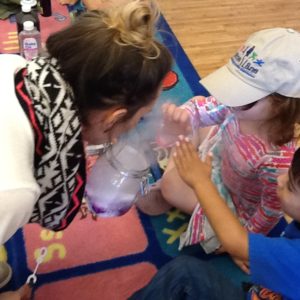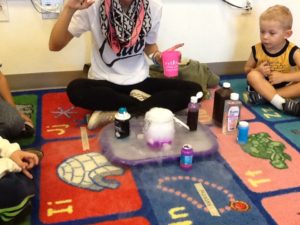“Good teachers teach us how to do something, but great teachers teach us why.
Good teachers share the facts while great teachers weave facts into real-world applications.
Good teachers may do “activities”, but great teachers create unforgettable learning experiences.”
When thinking about early childhood education, perhaps not much comes to mind in the way of science. As adults, when we think of science, we think of the periodic table, atoms, molecules and relativity — all topics that are way too abstract and complicated for young brains to fully comprehend, right? They will be able to grasp and appreciate these big concepts when they’re older, right? Wrong!
Studies show that children have formed an opinion, either positive or negative, about science by the age of 7. Wow! How much science instruction can you recall receiving before first grade? With the current emphasis on STEM education all over the world, our early childhood educators have an enormous responsibility to ensure kids have a strong foundation in science. The studies linked above illustrate how early childhood teachers have more of an influence on a child’s interest and subsequent success in science than teachers at any other grade level, including middle and high school.
During the early childhood years, science, like all other “subjects” covered, is best experienced through active learning and exploration. Great teachers involve kids in the “sciencing” through hands on experiments and sensory experiences. They engage children as intellectual explorers and theory builders.
By creating an environment ripe with opportunity to tinker, pour, mix, mold and feel, we foster the development of scientific thinking in children. Young scientists are led to make their own discoveries. Instead of asking adults for an answer, children are encouraged to investigate, inquire, collect data and search for new ways of doing things.
Children are naturally curious. When given the opportunity, they often make discoveries, experiment and build theories on their own. Imagine the scientific possibilities with a teacher’s guidance and direction. It is our imperative to introduce concepts, pose questions, present them with tools and provide materials that encourage them to think differently and learn to solve problems or find a new way of looking at something.
Our Miniput, Lilliput and Traveler camp Bubble, Bubble, Pop! Do the Science Bop! is the week of July 30 to August 3rd! We can’t wait to “science” with your child and find out more about the world around us.



